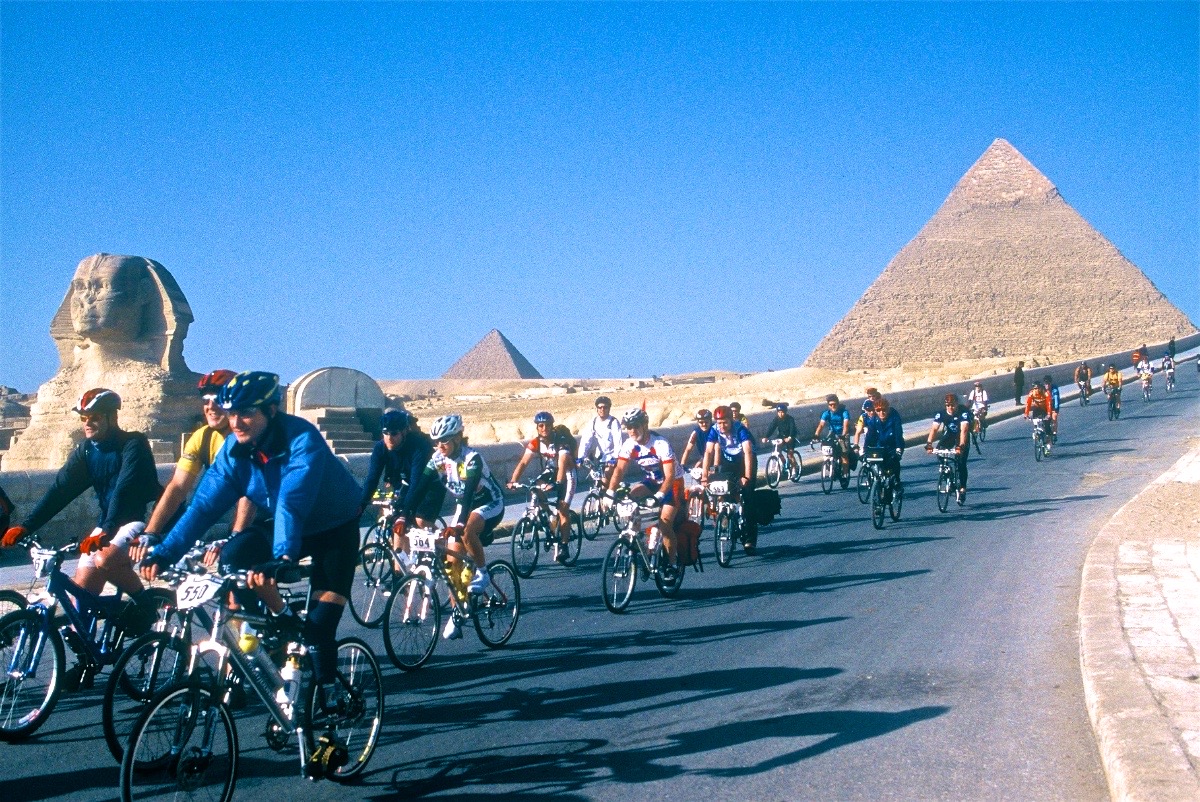
If every professional ran his business like Henry Gold, the planet would be in much safer hands. Co-founder of TDA Global Cycling, Henry truly practices Responsible Tourism. And goes the extra mile to protect his Mother Earth. AJAY JAIN interviewed him – the Q&A was an adventure in itself. Imagine what it would be like to go out there and ride with Henry.
What prompted you to set up a travel company?
A very good question as I never intended to do so. All my life I wanted to do some great expedition – so when I turned 50, I said to myself ‘if not now, when?’ A decade before I was a part of another project where we were going to manufacture a cheap rugged bicycle for the African market. I came up with this crazy idea to market the bike: organize a bicycle expedition and a race across Africa from Cairo to Cape Town. So I called up a guy who was originally interested in doing the expedition part only; overnight we decided to drop everything else and just go for it.
Do you have a favourite travel anecdote?
I have a couple of stories from the first TDA (Tour d’Afrique) tour in Africa. A bunch of riders came to a “T” intersection in Malawi and they were confused which way they should go. There was a local man sitting under a tree so they thought they would ask which way the white men ahead of them cycled. He pointed to the right. They cycled for about 20 minutes and then decided that they were going in the wrong direction. They came back to the intersection and the man was still sitting there. One of the riders, who knew that there were a few cyclists ahead of them, sarcastically and angrily asked which way did the white men cycle. And again the man pointed to the right. The cyclist then instinctively asked, “when” and the old man said, “Oh, maybe three months ago!!”
Another cyclist named Greg came on the tour with an expensive racing bike totally inappropriate for the Northern Kenya volcanic dirt terrain. Later in the morning, being the last rider, I came upon him repairing his fifth flat tire of the day. Knowing that he is a fast and strong rider, I told him that he will catch up with me and I cycled on. Few hours later I came to camp and there was no sign of Greg. It was getting late and I decided to go and look for him. Just then an old pick-up showed up with Greg. Expecting the worse I asked Greg what happened. He responded with a smile, “I had the best day of my cycling life. After you left I fixed the tire and started cycling again. Within five minutes I had another flat. I took the bike and threw it into the bushes and lay down to rest. I fell asleep and when I woke up, two Samburu warriors holding spears were looking me over. Soon enough they wanted to try my fancy bike so I repaired the flat again and after a while of fooling around on the bike they invited me to their village where I passed the day. And I knew I had to catch up so they offered to drive me in this old vehicle.”
“Best day of my life,” he repeated. This is the magic of adventure travel or as one of our riders described it: ‘unscripted adventure.’
As a traveller, what has been the most memorable journey for you to date? What made it so? Do share the adventure and thrills you felt, how it touched you, why you love talking about it etc.
Well this is an easy one. I have been fortunate (I have to be careful that people understand this) to be attacked and trampled by a wild elephant in India in a place where there were not supposed to have been wild elephants. I say fortunate because when an angry elephant is stepping on your head and your bike helmet is cracking under his foot, and you live to tell the story and eventually you recover and go back to your normal life then you are fortunate indeed. More to the point, when you survive a close call you tend to be able better to focus on what is important to you, spend more time on things that matter to you, and be more generous to the world around you. In one simple sentence the world looks much more beautiful.
The most memorable journey however has to be the first ever cycling tour from Cairo to Cape Town. The whole project was a complete unknown, something that had not been done before. We did not know how the human body and psyche including my own would adapt to the brutal roads and terrain and the pace at which we were crossing Africa. Coming to camp each day was a celebration for my partner and me. Each day was unknown as the tour was not scouted. So each day was a surprise, each day had a unique story but most important the tour taught me so many things about myself, leading people, dealing with unexpected challenges, celebrating life. And it changed my life.
When people ask you for recommendations for trips, which ones do you usually recommend? What is special about these?
I usually try not to answer the question. What I tell them that if you like being on a bike, if you like the outdoors, if you enjoy seeing new places, meeting new people, if you are open to experiences that come along the way, any trip – whether it is taking a new route to your cottage or a trip in Patagonia – will be full of surprises and enjoyable. And I mean it because I have some of the best memories from isolated places that people would not consider as destinations like Eastern Sudan or Uzbekistan. What is special about these places? Simple, it is what happens to you, the people you meet, what you learn about yourself, how you learn to appreciate every aspects of what is available on this planet, the sun on your face, the wind in the back. I mean a tree in a desert can be more interesting than a beautiful verdant forest and certainly give you more joy.
When people go on trips led by you, what is that special touch that you bring personally?
I think it is the stories, knowledge and experience I bring along. I had an opportunity to live in different parts of the world, I have done several different things, I have an interest in what is going on in the world, so I can often provide a context to what people are seeing, experiencing and feelings. And perhaps just a little bit of wisdom that comes with cycling six continents at least that is my interpretation of what I can give.
For trips like yours, there are always things that hold people back. Like inertia, fear of the unknown, costs, fitness, climate etc. How do you convince them to overcome these for your trips?
I do not think I can convince anyone if they are not open to it in the first place. Once they are, they still have many apprehensions as you mentioned, so our job is to give examples how others have dealt with it. Take fear of the unknown – we explain that if you look at statistics you have to compare actual risk as compared to perceived risks. Click here to read a post on this. When it comes to costs, you explain that if you want to come and cross South America on a bike, you can sublet your house or apartment, get rid of your car and associated costs or simply take into account the day to day costs of living where you are and compare it to what it will cost you when you cycle. You will see that it is actually not expensive; on the contrary, it is a great deal. Click here to read a blog I wrote on costs.
When it comes to fitness, we point out that if anyone really wants to do it, they can. We have had cyclists in their seventies who have successfully crossed continents with us. And none of them were former professional athletes, just individuals with an adventurous spirit, determination and desire to live fully. The fellow in this blog is one of them. He has been on four of our tours and is now 80 years old.
You work largely in the natural world – one under threat for various reasons. Are there any initiatives or steps that you take consciously so you and your clients travel responsibly? And do your bit to conserve the same for future generations?
This is a subject very close to my heart. I am actually on a board on a new organization called TiME (This is My Earth) that is trying to get more people involved in actually buying biodiversity hot spots around the world to protect these areas from development and further damage. I hope that people go the site and make a contribution. I talk about this on my trips and write blogs about it. We also donate funds to reforestation and rehabilitation project in Tanzania – see CPAR. But most important, I think what we do, that is travel across continents on bikes makes an impact on people; it shows them that they too can use a bicycle and lessen the impact on the environment. And we see the effect from year to year where we actually see more people on bicycles. Also our company has a foundation called TDA Foundation that donates bikes to health care workers and other organizations in Africa every year. As a matter of fact, we are initiating a wonderful campaign #200for200 where we are challenging people to cycle 200 km alone or cumulatively with friends and raise $200 for a bike in Africa. This is being done in honor of the 200th anniversary of the invention of a bike – www.200for200.bike.
What more needs to be done so our natural, cultural and social heritage is preserved for the future? Focus on areas and regions you work in.
Oh wow, what a question. In my previous life before I started TDA, I co-produced a film on development called Burden on the Land that deals with the issues of what and how things need to be done for successful development, for a better tomorrow. But there is an idea I am playing with; I wish I could sell it to the world that would benefit Mother Earth greatly. I would like the whole globe do absolutely nothing for a day, give the planet Earth a day to recover. By doing nothing I mean you do not work, you do not use any machine that uses any energy except human energy, you do not use your phone, car, bus, train, and airplane and so on. All you do is rest, eat, play cards with the neighbour, play music using non electronic instruments, take a bike ride on your local highway, go for a walk in the forest. For those that must work, let them work in public gardens, plant trees and so on. Give the planet a complete rest. I now call it Rest Day for Planet Earth.
This is not a new idea. Four thousand years ago the Babylonians had four days starting from the new moon – “holy-days, unsuitable” – for prohibited activities. We, humans now do a lot of unsuitable activities. I think it would be wonderful if a movement would sprout preaching at least one rest day for the planet for each season. I think that would make a dent in preserving the natural, cultural and social heritage. Perhaps the Adventure Travel Trade Association could kick start the process with the newly created Adventure Travel Conservation Fund. TDA would be the first to sign up. Perhaps a session at the upcoming ATTA Summit could be dedicated to Rest Day for the Planet concept.
How did your own travels and exposure to people contribute to your setting up a successful business?
Without my travel and work in Africa, TDA Global Cyclingwould simply not exist. The idea that you could cross Africa on a bike was considered highly dangerous and impossible due to terrain and geopolitical problems (restricted areas and wars). In fact, when we first announced the event in 2002 in the Toronto based Globe and Mail, the letters to the editor included such comments as Henry must be suicidal, a charlatan planning to abscond with the money as crossing Africa on a bike is simply not possible and Mr. Gold has certainly not spent a day in Africa, because if he did, he would know that what he wants to do is simply not doable. The truth of course was exactly the opposite; I was a known entity to the governments of countries we were planning to cross and because I knew the right people we were able not only to get permits but also assistance.
What challenges did you face in setting up and marketing your trips?
I suppose the biggest challenge was the skepticism about the idea and the business model. When it comes to marketing, two things: Spreading the word that we exist; that yes, there is a company that organizes and provides supported cycling trips, that you can actually cycle every inch of a continent on a bike. That is still our main challenge. The second challenge is in one of your questions, how do you convince people that they can take a long adventure that will be transformative, that will change their lives, makes them richer (not in a financial sense), better human beings. We still have no idea how to do this. It seems that this is harder than crossing continents on a bike.
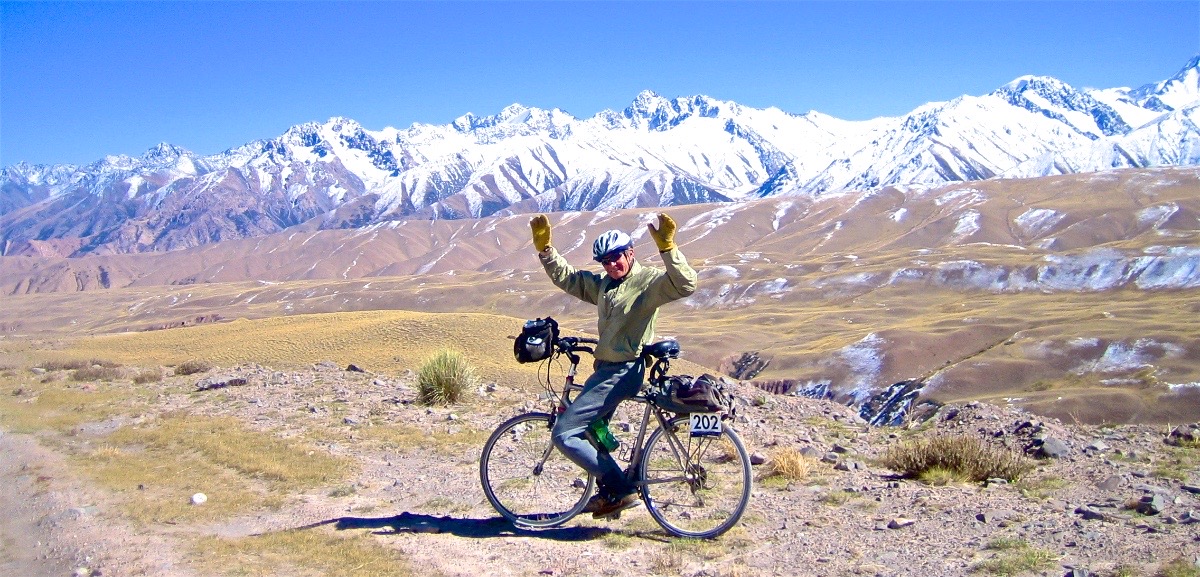
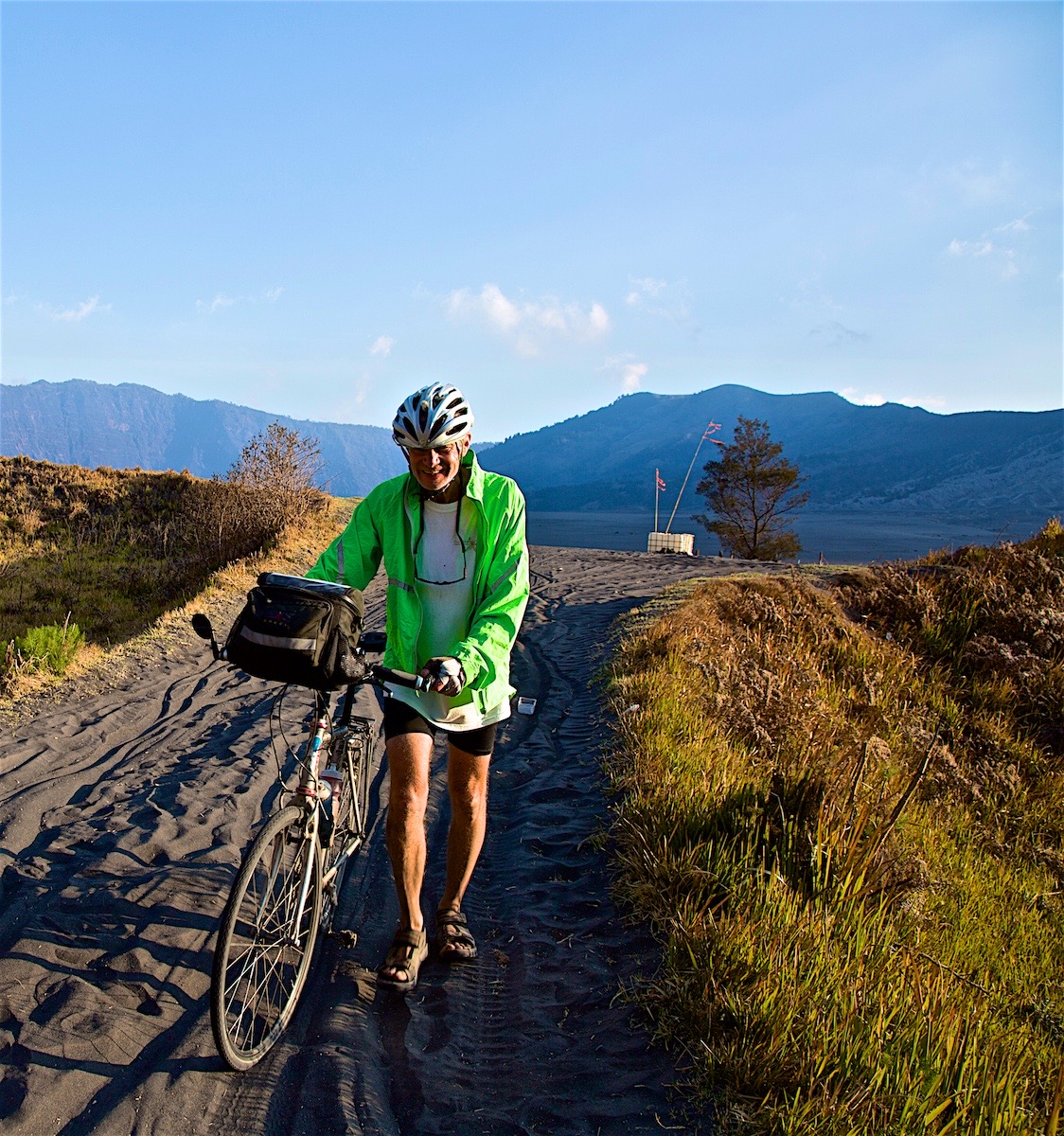
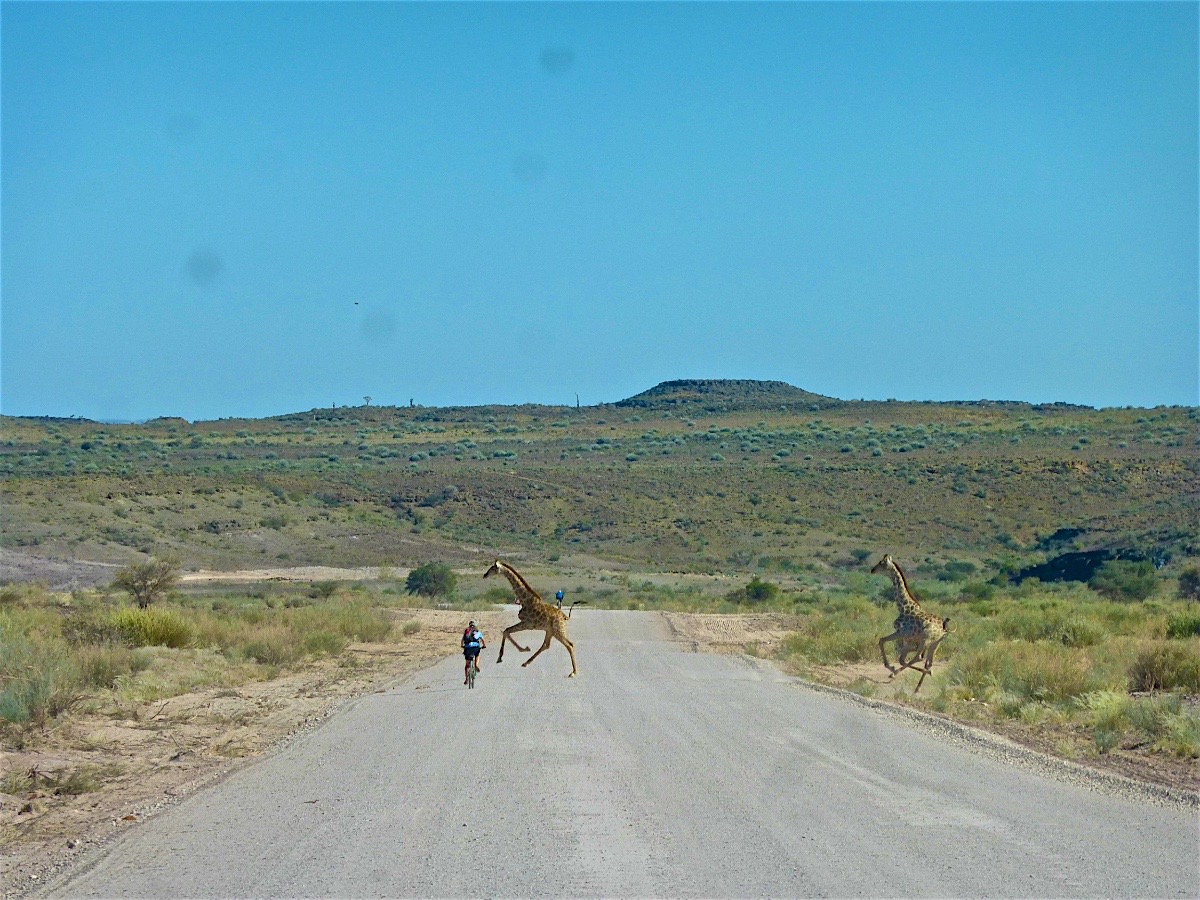
ABOUT HENRY GOLD
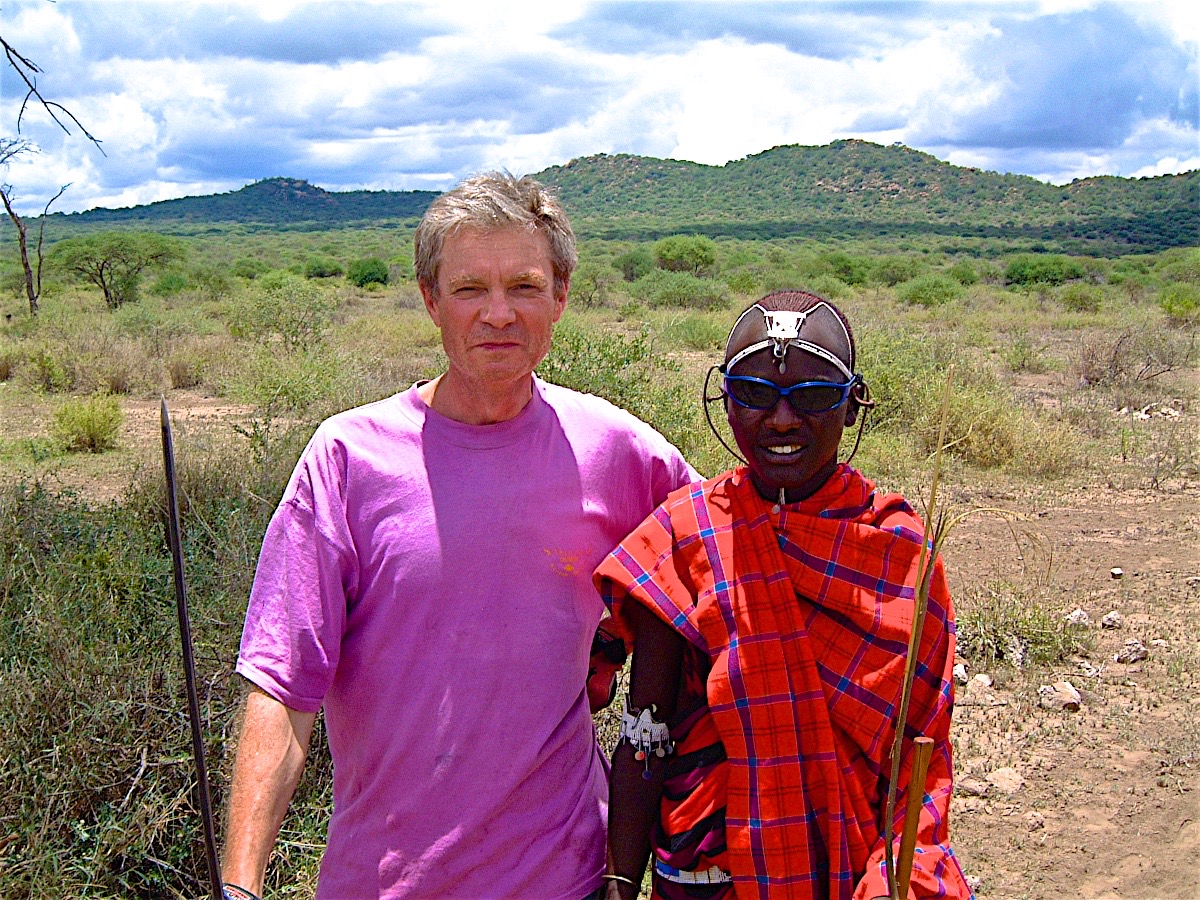
* Education: Graduated in Electrical Engineering in 1977 from McGill University in Montreal.
* Professional Career: Started as an anti-pollution Engineer for Union Carbide followed by Design Engineer for Trench Electric and then Project Engineer and eventually Manager of Engineering department for A. B. Chance Canada, a subsidiary of Emerson Electric. In 1984, co-founded and ran CPAR (Canadian Physicians for Aid and Relief), a relief and development organization which operates in several African countries. Among other achievements, the organization has planted 50 million trees in Africa.
* Creative: Co-produced a trilogy of award-winning documentary films:
– Burden on the Land (The Discovery Channel, Global TV): A film about foreign aid and development in Africa.
– AIDS in Africa (WNET/PBS): Covered the AIDS crisis on the continent.
– Meeting the Challenge (CBC/Man Alive): Examined health issues in Africa.
* Travel: In 2002 co-founded TDA Global Cycling (http://tdaglobalcycling.com), formerly know the Tour d`Afrique Ltd., an adventure cycling company recently voted by UK based Independent Newspaper as the best ‘Adventure Company’ in the world.
